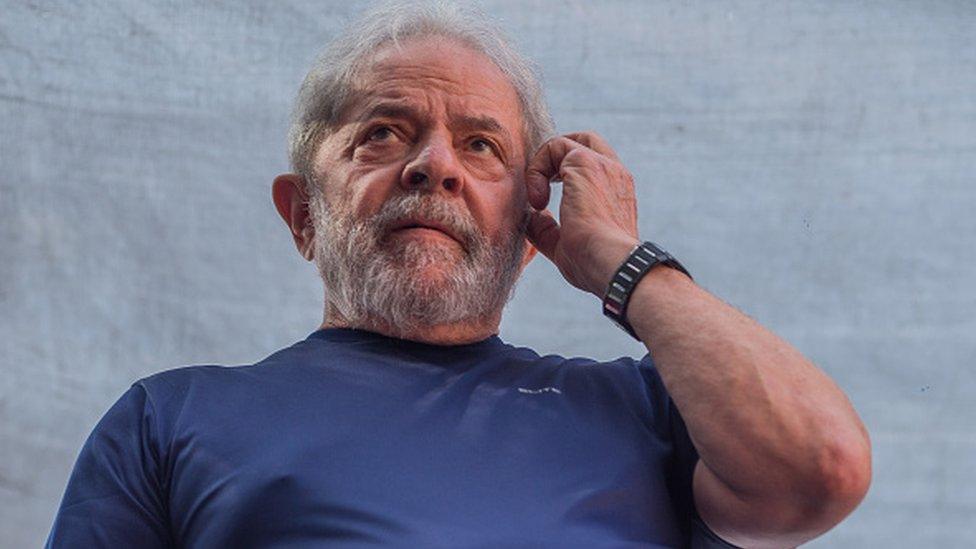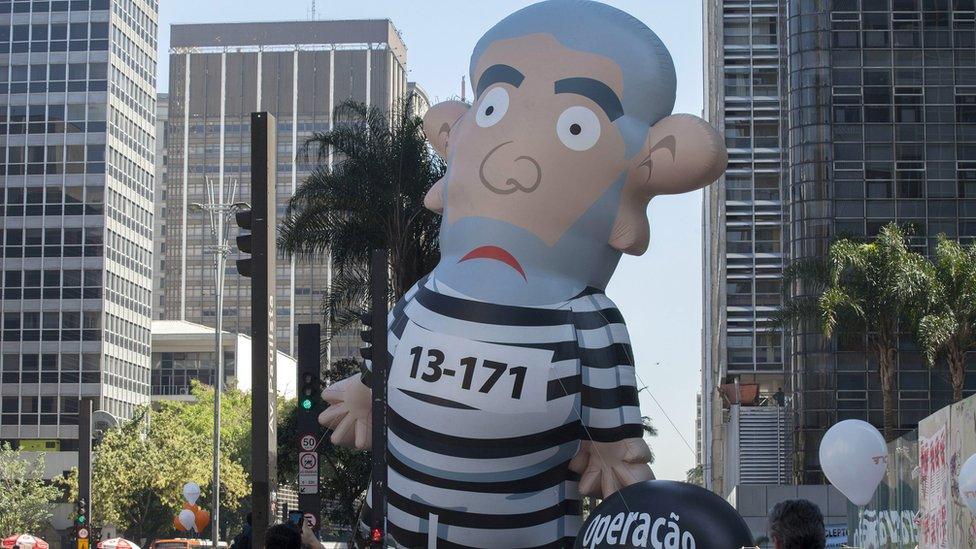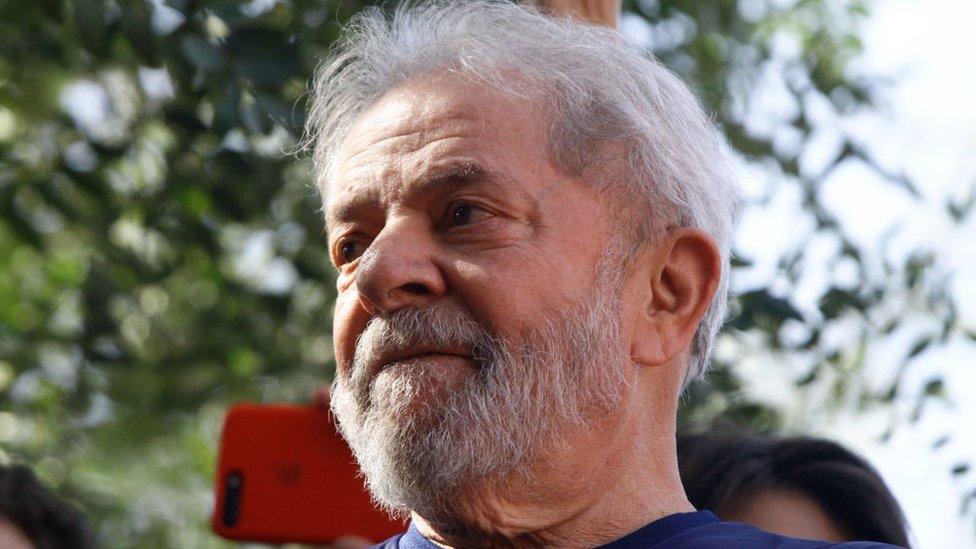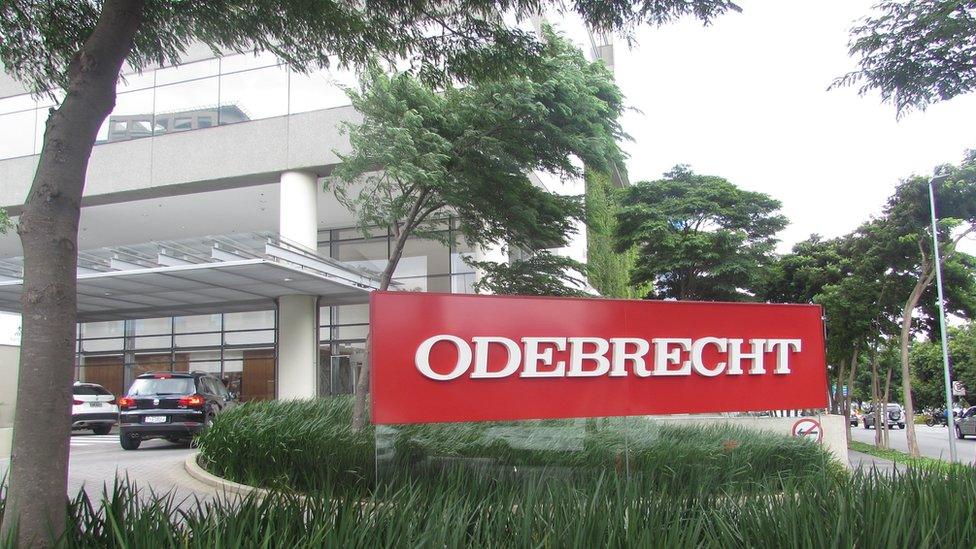Lula: Brazil court rejects request to free ex-president pending appeal
- Published

Luiz Inácio Lula da Silva says the corruption charges against him are politically motivated
Brazil's Supreme Court has delayed its decision over an appeal by former President Luiz Inácio Lula da Silva against his convictions for corruption.
Judges also rejected a proposal that Lula be freed until they reach a verdict, which is now scheduled for August.
Lula, 73, is serving nearly 25 years in jail for two separate convictions.
His lawyers argue that the judge who convicted him, Sergio Moro, was not impartial and had acted politically.
Lula led Brazil between 2003 and 2010, and is an iconic figure for the left in Latin America.
The former leader has denied all charges against him, including six others for which he is awaiting trial. He argues that they are politically motivated and designed to stop him running for the presidency again.
Lula had entered last year's presidential election, but Mr Moro's arrest order forced him out of the race.
At the time, Mr Moro was a powerful judge behind the so-called "Car Wash" corruption investigation, an unprecedented probe that centred on political bribes from state-run companies.
Lula's arrest paved the way to victory for Brazil's current right-wing President Jair Bolsonaro, who went on to make Mr Moro his justice minister.

There have been large protests in support of, and against, Lula since his arrest
Mr Moro has denied any wrongdoing and ignored calls to resign from his new post.
However his impartiality was thrown into question following a series of leaked private messages he allegedly exchanged with prosecutors before Lula's first conviction in 2017.
The messages, published in The Intercept, appear to show him asking the prosecutors to publish press releases criticising Lula's defence, and sharing investigative tips with them when he was legally obliged to remain impartial.
But Brazil's Supreme Court said these messages needed investigating before they could be admitted as evidence.
"We had already presented countless evidence that the ex-president did not have a fair, impartial, independent trial," lawyer Cristiano Zanin Martins told reporters, according to news agency AFP.
"He did not commit a single crime and he has the right to be judged by an impartial judge," Mr Martins added.
- Published6 February 2019

- Published22 April 2018
